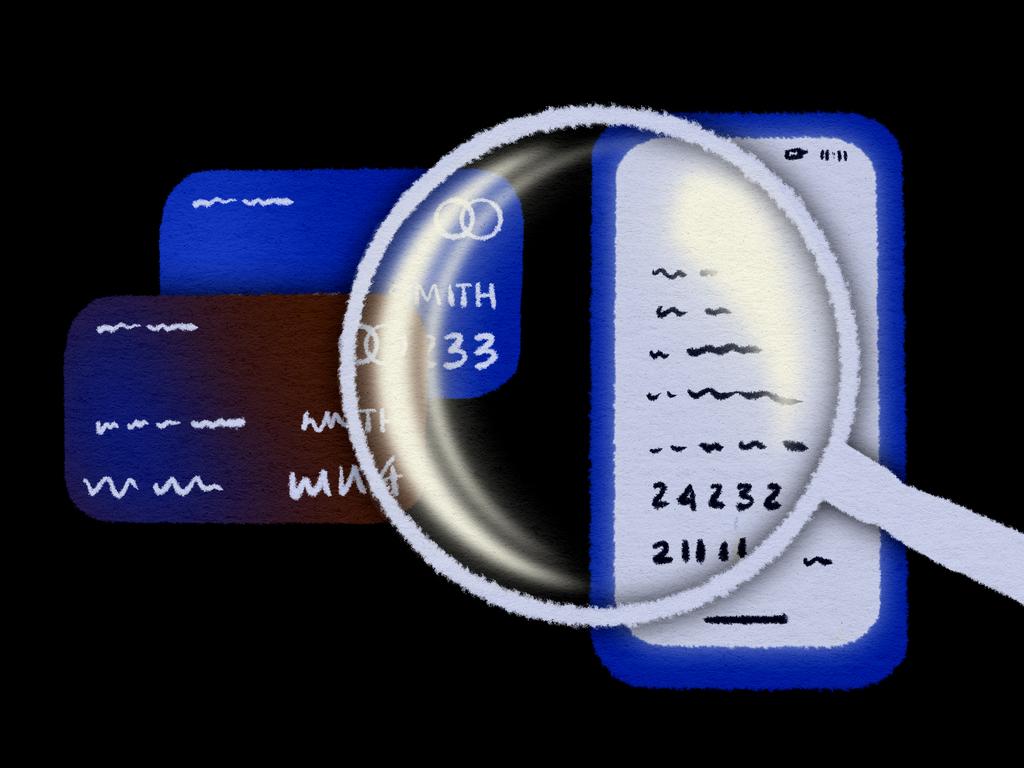‘Target on their backs’ for being Jewish: Australia in 2024 – how can this be?
Jewish creatives doxxed by pro-Palestine activists speak out after receiving death threats, saying the drawing up of ‘Jew lists’ evoked the Holocaust.
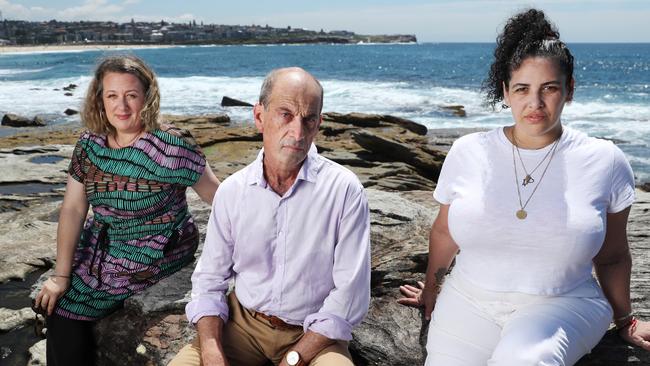
Jewish creatives doxxed by pro-Palestine activists have received death threats, had their families harassed, been sent swastikas and called a “cancer” in online hate mail – saying the drawing up of “Jew lists” evoked the Holocaust.
One of those targeted, Zara Cooper, said she could never previously understand how the Holocaust had happened. “Now I can viscerally see what our ancestors must have felt,” she said.
The February 9 doxxing prompted the government to accelerate legal protections, with Attorney-General Mark Dreyfus signalling criminal provisions could outlaw the malicious disclosure of personal information. Speaking to The Australian, five of those who had their details leaked – some with their picture included in what one described as a “most wanted” list – said they had a “target on their backs”.
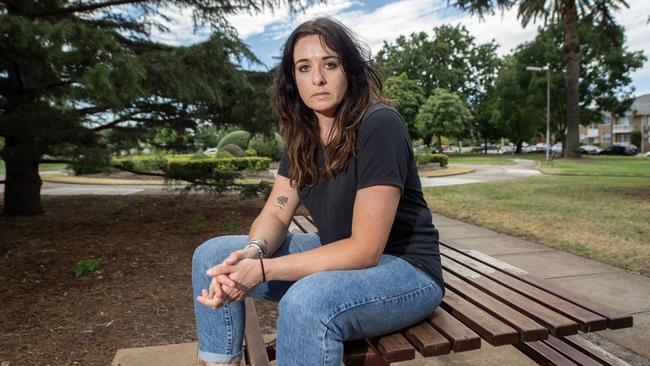
Others spoke on the condition of anonymity, given harassment since the incident and fear of reprisal. Some had anti-Semitic stickers plastered outside their workplace, received hate mail – one from a convicted stalker – and had business partners told they were working with a “genocidal maniac”. Others said they had gone into hiding.
Ms Cooper co-founded PaperKrane Shoes and was not a member of the Jewish creatives WhatsApp group, but was mentioned in it by another member, and drew the ire of high-profile feminist author Clementine Ford.
“I was in shock, you never expect something like that to happen,” she said.
The Australian revealed how – alongside Ms Ford – Matt Chun, Zee Mazloum and Elsa Tuet-Rosenberg led the sharing of the details, including to a web page that hosted the group’s transcript and a list of members, which included social-media profiles, places of work and photographs. The Australian is not suggesting that Ms Ford, Mr Chun, Ms Mazloum and Ms Tuet-Rosenberg participated in any of the abuse or harassment detailed in this article.
“Every time you voice any concern you’re told you’re flipping the narrative,” Ms Cooper said, adding she’d received “hundreds” of hate messages. She said that almost all of the Jewish creatives wanted peace and empathised with Palestinians.
“But every time we try to voice our loss, we’re told we’re being genocidal maniacs,” she said.
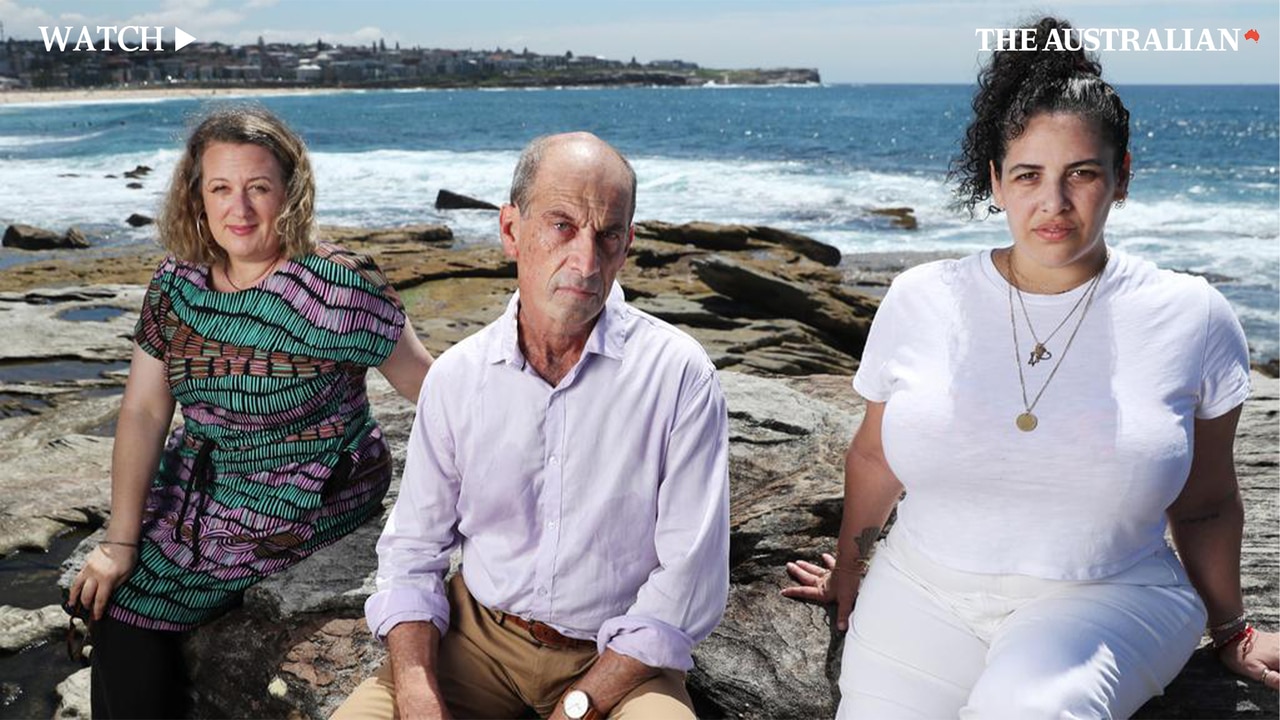
Ms Cooper, who had been a target before February 9, said her suppliers had received messages saying she and her business partner – who is not Jewish – were “genocidal”. Both had been targeted by Ms Ford previously, after Ms Cooper wrote to her management about some of her statements on Israel and Jews, and re-posted on Instagram some of the influencer’s content with added commentary criticising some of her remarks about Hamas, Jews and the conflict.
Artist and blogger Talia Emsalem said she had received daily online abuse – some calling her a “cancer” and others with swastikas. Her 15-month-year-old daughter, someone told her, would be “ashamed” of her when she grew up.
“It was harrowing to see us portrayed as ‘genocidal maniacs’ and likened to Nazis, simply for being part of a chat that advocated against anti-Semitism,” she said.
“The majority of (those) people would have had their existences shaped by Nazis, and this inversion of reality was not just untrue, but morally repugnant.”
Ms Emsalem said she was scared to go anywhere alone with her daughter since the doxxing
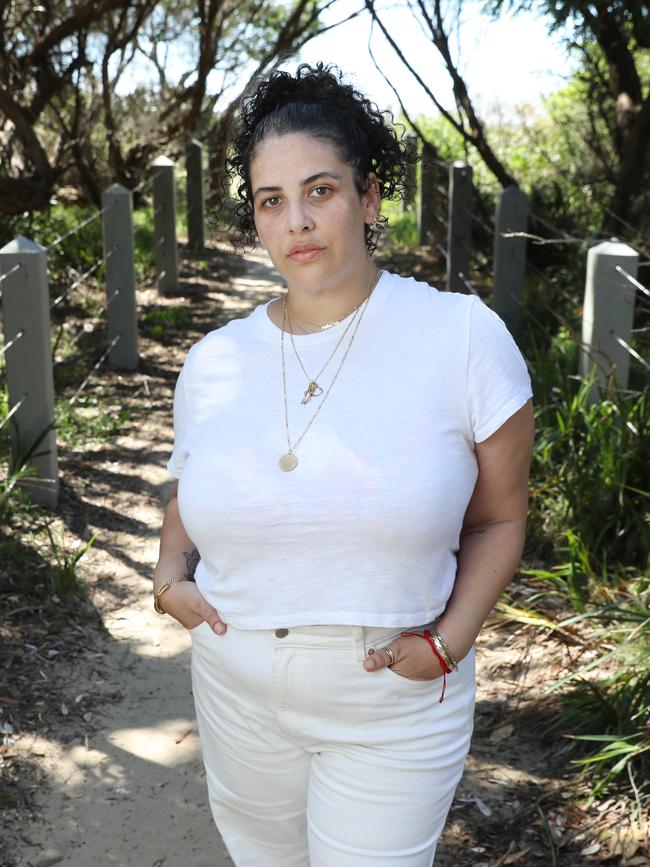
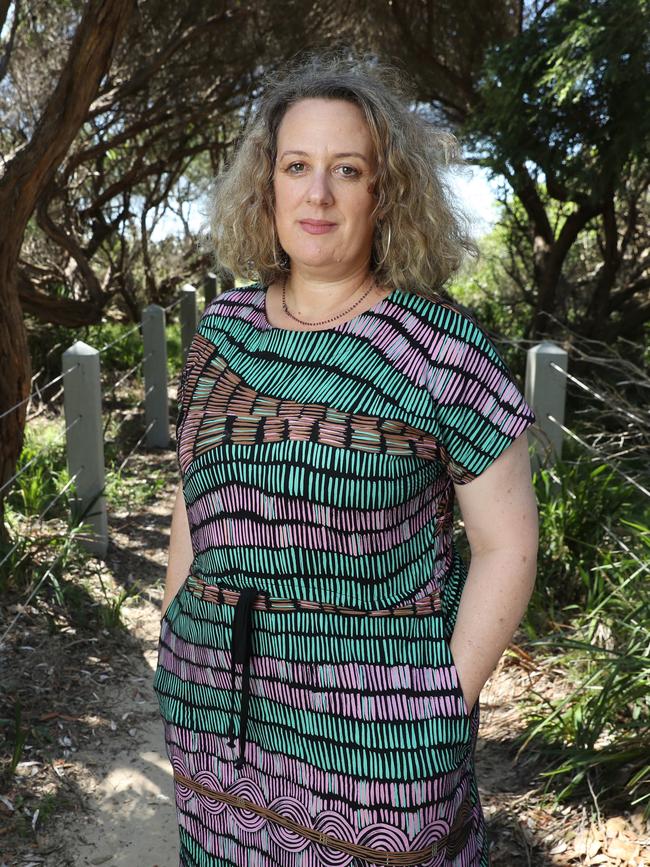
“We’re being vilified for being in a space that offered emotional support to each other – the same way any other group is entitled to do,” she said.
Composer Greta Gertler Gold said she joined the WhatsApp group after struggling with “grief, shock and loneliness”.
“I participated a bit in sharing my feelings, asking questions, learning from resources everyone was sharing, about the Middle East and locally,” she said.
“There were a multitude of views expressed, as one would expect in a large group of individuals living in a democracy, free to speak their minds.”
The day after the doxxing someone plastered anti-Semitic stickers outside her studio.
“This might just be a coincidence … who knows – I tore them down,” she said. “They returned (twice as many) the next day.”
Others, speaking on the condition of anonymity, said family members who had survived the Holocaust would be “traumatised”. “I don’t know of any Jewish person happy about the situation; no one is applauding what the IDF is doing, no one is happy to see casualties, and most want good relations with Palestine,” one said.
Another creative was included in a “top 50” list with pictures of each person with the word “confirmed” underneath. “My father survived Auschwitz … (a list of Jews) is a nightmare,” she said.
PR consultant Geoff Sirmai was also included in the “top 50” list. Some of his family died in the Holocaust – “we understand what lists (of Jews) are about” – and claimed that the Jewish creatives had been vilified. “If Jews are talking to each other (people think) it must be a conspiracy,” he said. “How that narrative has become the starting point is upsetting.”
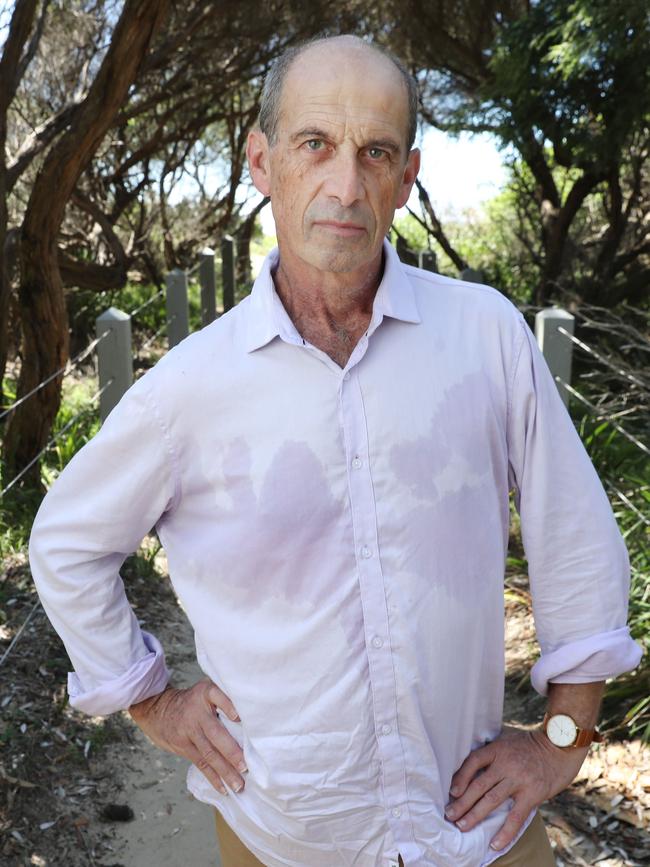
Mr Sirmai said those doxxed were predominantly progressive, had criticised the Israeli government and called for a two-state solution. “So much is assumed about us based on our identity,” he said, claiming people had “misrepresented” the group’s intent and “incited abuse”. “It wasn’t a ‘secret’ group, but a private one.”
Another said he was “devastated” about what was happening in the region but lamented the isolation of Jews in the creative space. “(It’s) such a partisan, dehumanisation of ‘Zionists’ (in the chat), rather than (realising it was) 600 Jewish creatives sharing a background,” he said.
“The doxxing hasn’t saved one person or one hostage.”

Another creative said it was “neither a Zionist or pro-Israel” group – “the name says it all, it was for creatives” – and that writing letters about rhetoric many in the community took issue with was not a crime.
“That we are ‘lobbyists’ is ridiculous … it’s delusional to think we have the power to get someone fired overnight,” she said.
Another left the chat after a few days – “but it was long enough for me to be doxxed” – and said that the group’s members were “often in lock-step with liberal initiatives”. “They were the first to speak out against Islamophobia, first to support the voice and LGBTQ initiatives,” he said.
Musician Anita Lester was doxxed and targeted, both after and prior to February 9.
She said she “doesn’t go a day” without being harassed and said that her mother’s art school received threats.
Additional reporting: Bianca Farmakis



